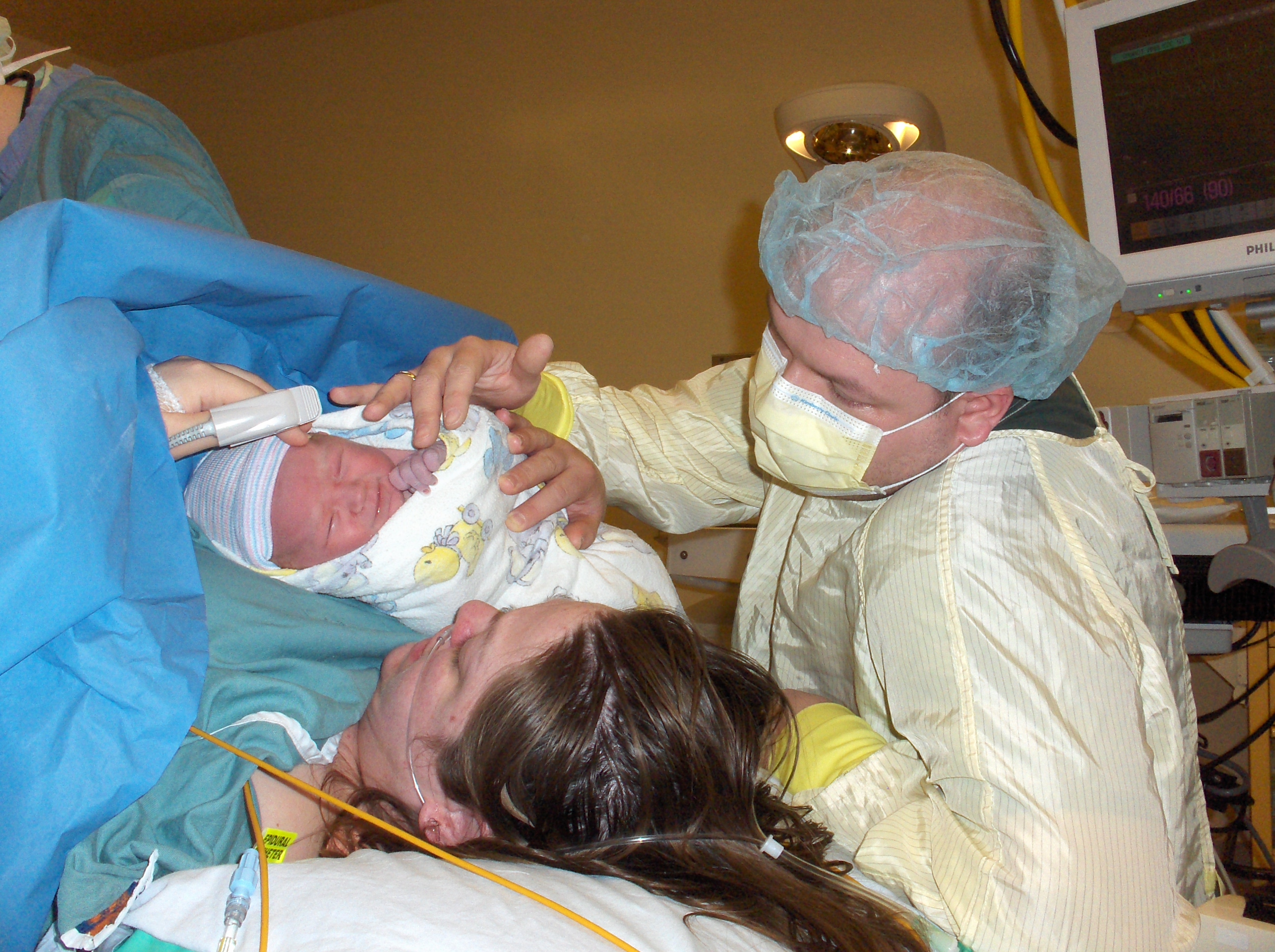
One of the most important things to remember when choosing the health provider who will deliver your baby is that you want to find a person who has a similar philosophy about birth as you do.
There are two main models of care in birthing… there is the medical model and the midwifery model of care. To understand the difference between these two models of care please read the blog post entitled How to Choose the Right Doctor or Midwife for Your Baby’s Birth.
Alright… now that that’s done… you should have a good idea of which model of care best fits you and your family. Please note, that you can’t assume that all doctors will lean toward the medical model or that all midwives lean toward the midwifery model of care. The best way to find out is to ask smart questions. Smart questions are questions which encourage dialogue and discussion rather than a simple yes and no questions.
Here are some questions, which will help you get started.
1. What is your birth philosophy? Refer to the blog post mentioned above to understand the different philosophies about birth.
2. How do you manage patient care? Their answer will probably fall somewhere on the continuum between actively managed care and physiological care. To understand the difference between these two please read this blog post about different birthing styles and approaches.
3. What kind of schedule do you work on? Does your care provider work in a rotation? When in labour would they start care? When would they arrive at the hospital to be with you? How about the schedule during labour? Or for inductions? Is there a scheduled amount of time for the birthing (phase 2) of labour?
4. How involved are you in the labour process? Some care providers rarely leave your side once they arrive, and others pop in and out during the labour. Some check in often via phone calls with the nurses.
5. What are your rates like? Your stats? How often do they do inductions? c-sections? epidurals? instrumental delivery (forceps and vacuum extraction)? Remember this will be influenced by how they manage patient care and by the type of pregnant women they work with. Care providers who work with high-risk women are going to have higher rates of interventions which is understandable. A high-risk woman is someone who is considered to have more health risks involved in the pregnancy (for example, diabetes, high blood pressure, carrying triplets etc). A low-risk woman is someone who is experiencing a normal healthy pregnancy without adverse medical complications.
And for those of you who are using holistic labour techniques, then the following questions will be very helpful. They are specific to our BirthBliss philosophy and techniques for birthing. Click here to learn more about the BirthBliss method.
1. How comfortable are you omitting routine cervical checks, and refraining from using a pain scale when accessing how I am coping with labour? Would you be willing to put that on my chart so that other doctors will be aware of those choices?
2. Would you be willing to enter the room quietly and speak softly? If I appear to be deeply relaxed, will you speak with my husband rather than directly with me? My husband will gently alert me that you are there to check the baby, measure blood pressure, etc.
3. We advocate the use of gentle, vernacular language regarding labour and birth. For instance, the word “surge” replaces “contraction,” which often has negative connotations. We use the terms “thinning” and “opening” instead of “dilation” and “effacement.” Would you be willing to use this language with us?
4. If my labour slows or stalls, would you suggest that I use the opportunity to rest and relax, rather than augment with medication? If the surges do not resume in a reasonable amount of time, would you suggest that my husband use natural methods to increase uterine activity: walking, showering, nipple or clitoral stimulation, and visualization (especially releasing fears and limiting thoughts)?
5. Will you allow me to assume different positions for birthing? Which positions are you comfortable with? Squat? Birth stool? In the tub? On hands and knees?
6. During the birthing phase, will you allow my husband to encourage me, and avoid yelling at me to push? I wish to bear down as my body feels the need, and to exhale instead of holding my breath. Do you believe it is possible to birth a baby by following the body’s lead?
7. When my baby is born, will you help me bring the baby to my chest or abdomen and allow the baby to stay with me for the first 20 minutes, before weighing and measuring the baby?
Finally remember it’s never too late to ask these questions or to switch doctors/midwives if you discover that you just don’t think the same way. The worst time to have this discussion is when you are actually in labour. That’s the last thing that you want to be doing… having a baby and having a discussion about the kind of care you want.
So preparing beforehand is a crucial step in creating a positive birth experience for you and your baby. Ideally whoever you choose should make you feel respected, heard and well cared for.
Wishing you a very happy birthing day,
Marie
If you enjoyed reading this article, you might also like these two blog posts…
How to Choose the Right Doctor or Midwife for Your Baby’s Birth
When we discuss “what’s wrong with labour?”, or “why are so many women NOT having calm, comfortable birthing experiences?” the number-one answer on the list is “Failure to Secure the Proper Caregiver.” Let’s explore this a bit. Keep Reading
..
Christianity and HypnoBirthing: Go beautifully together….
Are the bible teachings and HypnoBirthing complementary?
Can I be a true Christian applying Jesus’ teachings and use HypnoBirthing for my baby’s birth? Keep Reading.
..







